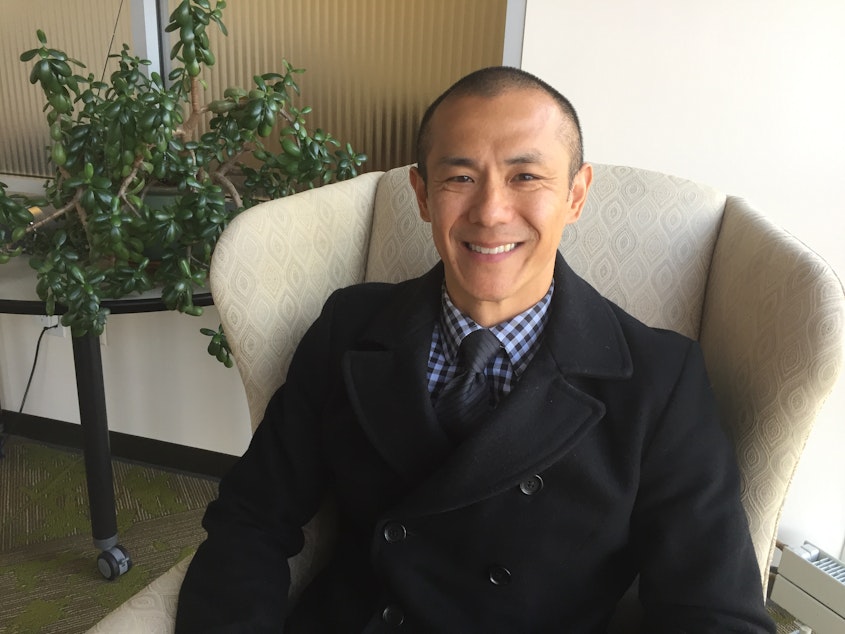Why Are Some Kids Tried As Adults? This Man Wrestles With That Question

Three teenage brothers have been charged in the January shooting at the homeless encampment known as the Jungle in which two people were killed and three wounded.
The two older boys, aged 16 and 17, were charged as adults per Washington state law.
But Jimmy Hung, senior deputy prosecutor for King County, had to make the call whether to charge the youngest brother, 13, as an adult or not. Hung said that decision is the most important one he makes in juvenile court.
Juvenile jurisdiction ends at age 21, meaning a person can only be incarcerated and supervised – including probation and parole – until that age.
“I think it’s hard for us to say, ‘Let’s close the book on a 13-year-old,” Hung said.
Sponsored
He said a lot of factors weigh into that decision: the age of the suspect when the offense was committed, his role and culpability in the crime, socioeconomic factors, and whether the juvenile had participated in rehabilitative services.
“For these boys, a lot of systems failed them,” Hung said. “Until we find a way to deal with poverty, institutional racism, implicit bias, all those things, by the time these 16- and 17-year-old boys get in the criminal justice system, in many ways, it could be too late.”
Last year, King County charged 20 juveniles as adults. All of them were people of color.
“Absolutely, the criminal justice system is racially disproportionate,” Hung said.
Although Hung said it was a fair criticism, he said that it was a complicated issue and that pointing the finger solely at the court system isn’t enough.
Sponsored
It starts with schools, Hung said. Black youth are disproportionately disciplined, expelled, and suspended and that plays a big role in the disproportionality in the juvenile justice system.
However, Hung said that giving suspects a break by releasing them at 21 – even with past abuse and trauma – may not be fair to the community.
“I think that’s a pretty pie-in-the-sky belief that at 21, something magical is going to happen and they’re going to become law-abiding citizens,” he said.
More often than not, though, Hung said the choice is to keep cases in the juvenile court, even by charging a crime under a lesser degree.
Produced for the Web by Kara McDermott


